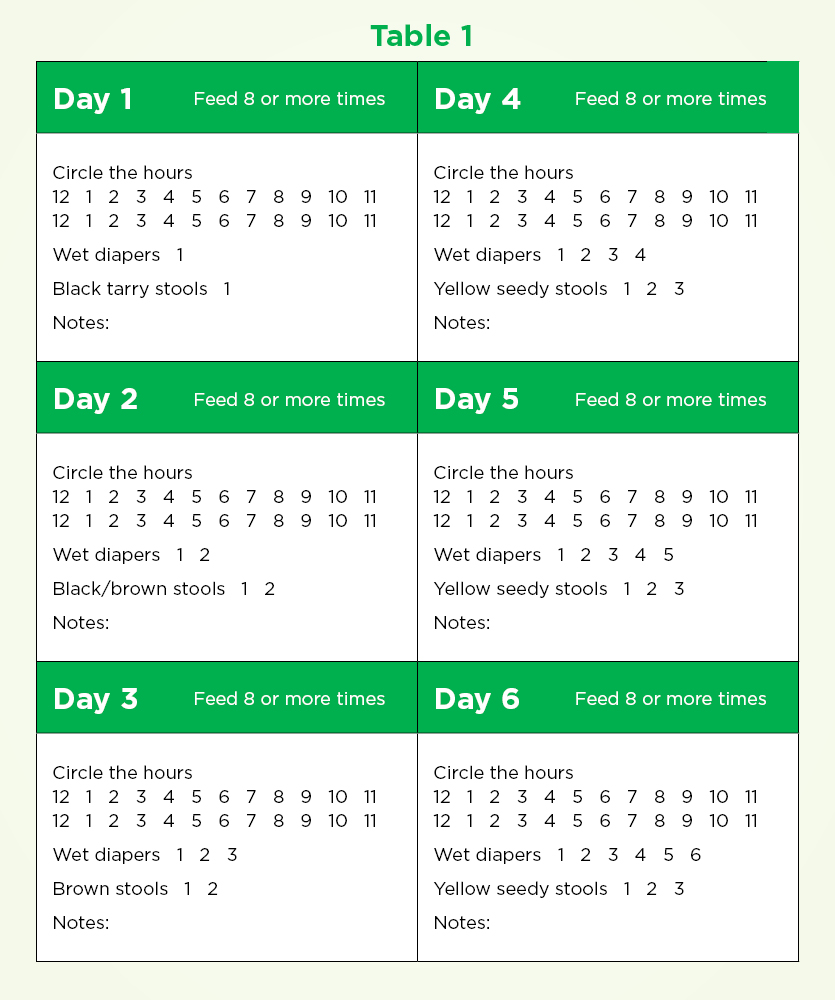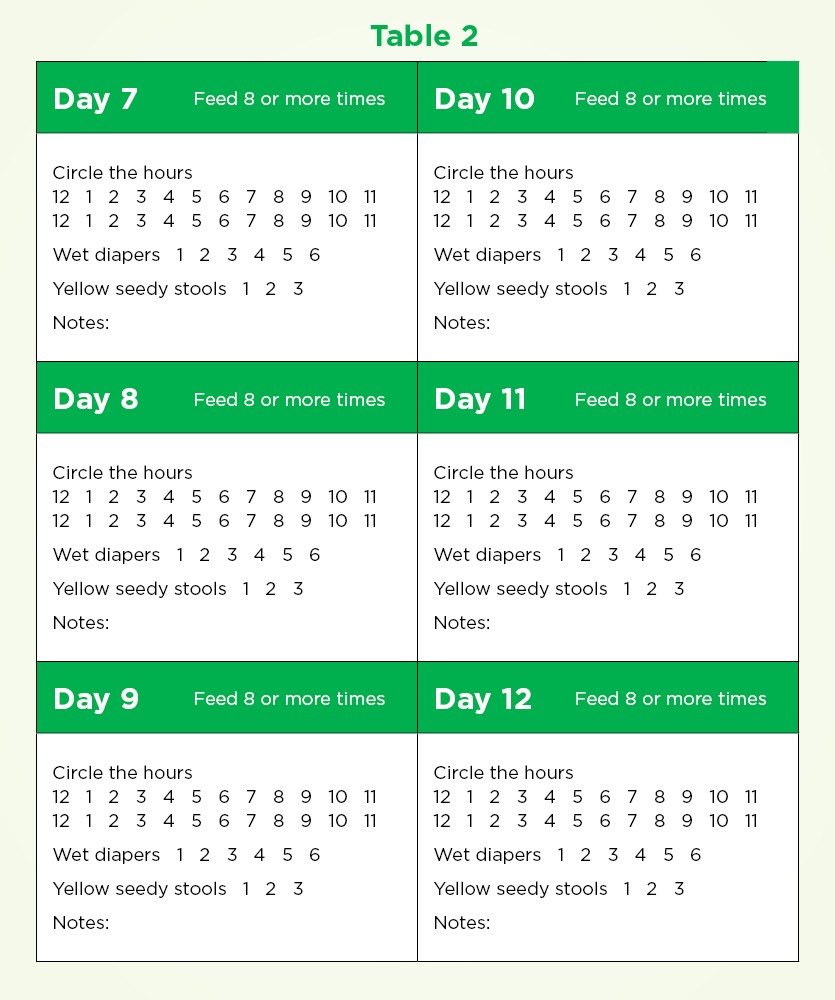
This post was written by Angela Swanson, BSN, RN, IBCLC.
The first two weeks of a baby’s life can be both exciting and a bit nerve-wracking for new parents, especially when it comes to ensuring that your infant is getting enough nourishment. This quick guide to help you monitor your little one’s intake can offer peace of mind during these early days.
Signs your breastfed baby is getting enough milk
- Steady weight gain. Infants typically lose a small amount of weight after birth, but they should start to gain it back by the end of the first week. By 14 days, they should be back to their birth weight.
- Frequent feedings. Newborns often feed 8-12 times a day. To check if your baby is nursing effectively, listen for swallowing sounds and look to make sure his/her jaw is working. Allow your infant to feed on the first breast for 15-20 minutes. Once finished on the first side, burp the baby, stimulate and offer the second side.
- Satiated and content. After feeding, your baby should appear content and relaxed. If they are frequently fussy or seem unsatisfied, it could be a sign to check your breastfeeding technique.
- Adequate diaper output. A reliable indicator of milk intake is the number of wet and soiled diapers you notice in a day. Here’s a simple table to help you keep track:


Additional tips
- It can take a while. As mentioned above, aim for each feeding to last about 15-20 minutes per breast. It’s common for a feeding to take 30-50 minutes in the early days. Baby may be sleepy between breasts or may need a diaper change.
- Consult a professional. If you have concerns about your baby’s feeding patterns, weight gain or diaper output, don’t hesitate to consult with your pediatrician or a lactation consultant. They can provide personalized guidance and support.
By keeping an eye on these indicators, you can ensure that your baby is getting enough milk and thriving during those first two weeks. Enjoy this special time and remember, you’re doing a great job!
References
American Academy of Pediatrics. (2020, April 7). How to tell if your breastfed baby is getting enough milk. HealthyChildren.org.
Centers for Disease Control and Prevention. (2022, April 11). How much and how often to breastfeed. Centers for Disease Control and Prevention.
Centers for Disease Control and Prevention. (2023, March 21). Newborn breastfeeding basics. Centers for Disease Control and Prevention.
Lactation Education Resources . (2023). English handouts. English Handouts - Lactation Education Resources.



